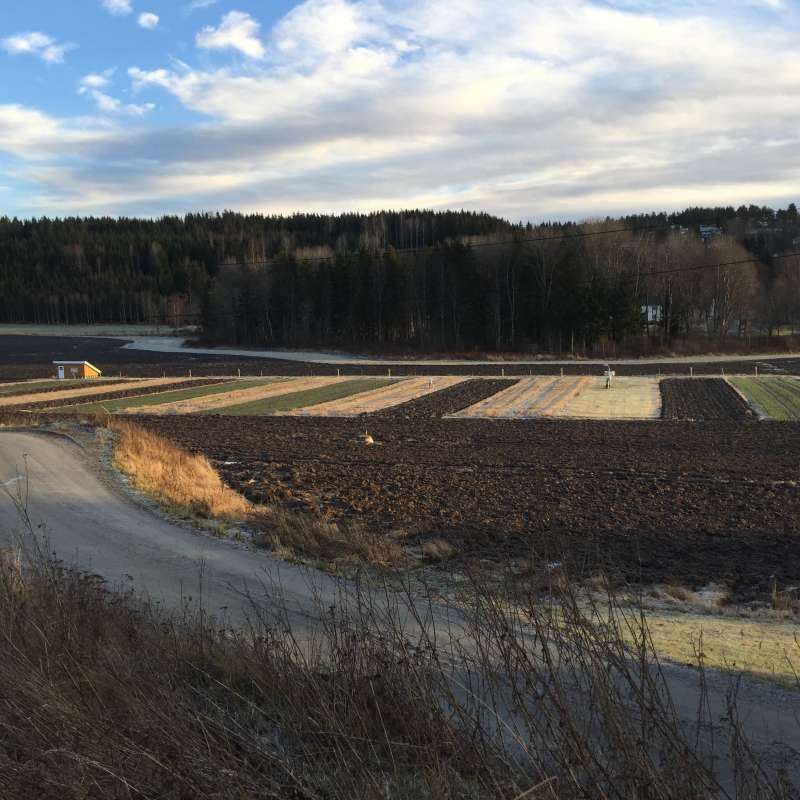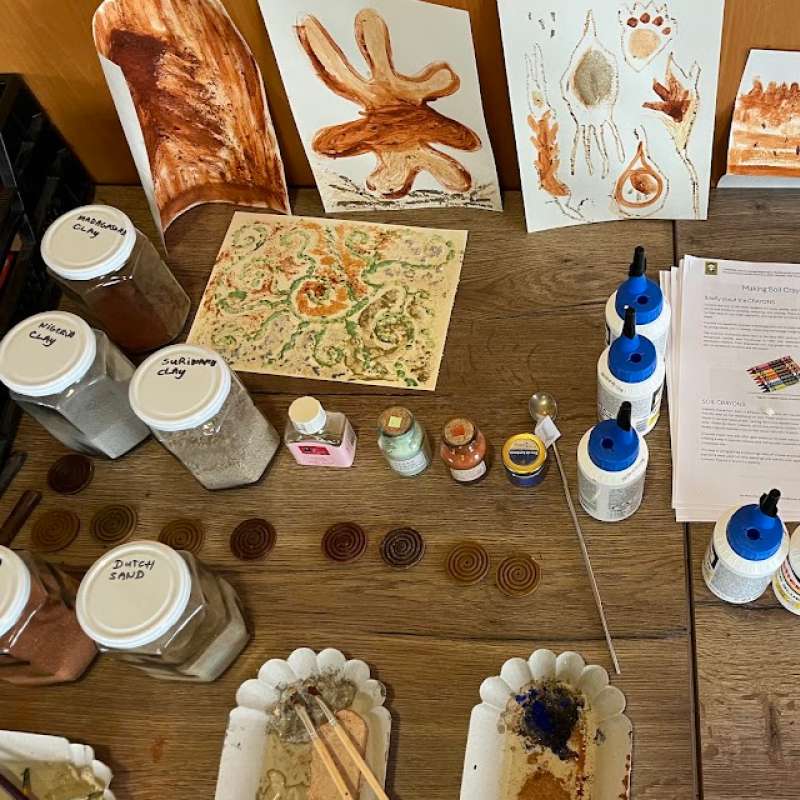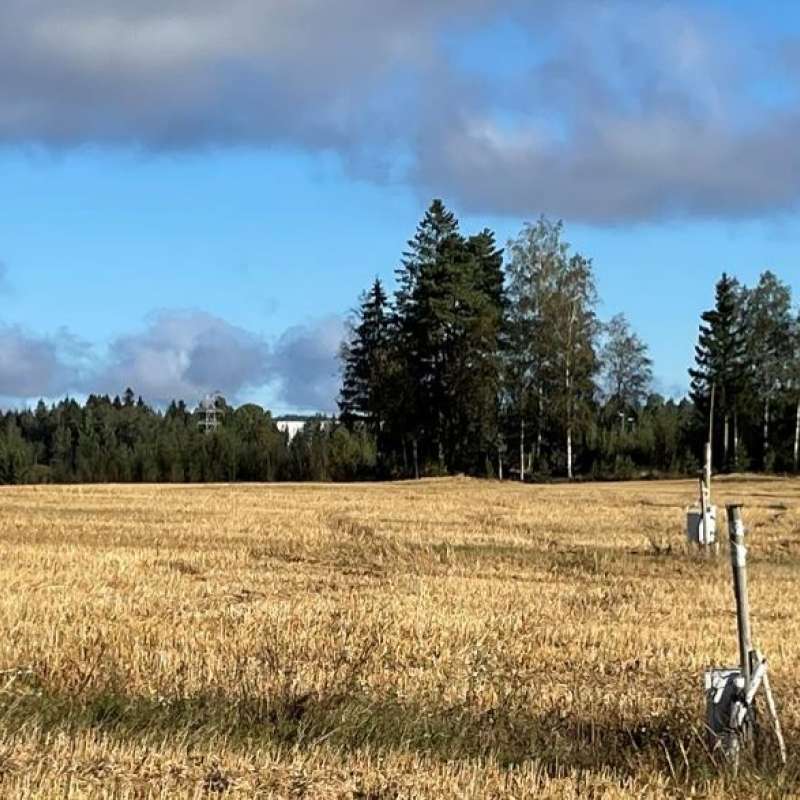Frederik Bøe
Forsker
(+47) 958 71 316
frederik.boe@nibio.no
Sted
Ås - Bygg O43
Besøksadresse
Oluf Thesens vei 43, 1433 Ås (Varelevering: Elizabeth Stephansens vei 21)
Biografi
Utdanning:
PhD stipendiat på temaet jordhelse ved Wageningen University and Research (2020-2025).
Mastergrad i Miljø og Naturressurser med spesialisering i miljøgifter og økotoksikologi frå Norges Miljø- og Biovitenskaplige Universitet i 2017.
Kompetanseområder:
-
Jordhelse
-
Dokumentere miljøeffekter av jordbruksdrift med fokus på transport av jord, næringsstoffer og plantevernmidler i jord og vann.
-
Miljøtiltak i jordbruket (fangvekster, dyrkingspraksis, kantsoner m.m)
Utvalgte prosjekt:
-
Program for jord og vannovervåking i landbruket (JOVA).
-
Kjelle ruteforsøk (2014-), Direktesåing og fangvekster for å bedre norsk jordhelse (JorNor) (2021-2023).
-
EU prosjekter: Precilience (2024-2028), TerraSafe (2024-2029), SoilCare (2016-2021).
Forfattere
Elise Van Eynde Felipe Yunta Cristina Arias-Navarro Daniele De Rosa Iñigo Virto Panos Panagos Diana Vieira Calogero Schillaci; Alberto Orgiazzi Stefano Salata Philippe Hinsinger Dalila Serpa Frederik Bøe Gerard Ros Eduardo Moreno Jimenez Christopher Poeplau Gabriele Buttafuoco Arwyn Jones Cristiano Ballabio Emanuele Lugato Stefan Frank Tiphaine Chevallier Rosa M. Poch Pasquale Borrelli Francis Matthews Diana Vieira Matthias Vanmaercke Jean Poesen Günay Erpul Velibor Spalevic Snezana Dragovic Yuriy Dmytruk Anita Bernatek-Jakiel Philipp Saggau Leonidas Liakos Christine Alewell Mathieu Lamandé Diego Baragaño Olivier Evrard Tanja Reiff Vera Silva Ana De La Torre Chaosheng Zhang Piort Wojda Chiara Piccini Claudia Cagnarini Zoka Melpomeni Fuat Kaya Kitti Balog Noelia García Franco Simone Scarpa Timo Breure Maria J.I. Briones Julia Köninger Marcel Van Der Heijden Nikolaos Monokrousos Maëva Labouyrie Davorka K. Hackenberger Ottone Scammacca Michele Munafò Silvia Ronchi Andrea ArcidiaconoSammendrag
Det er ikke registrert sammendrag
Sammendrag
Det er ikke registrert sammendrag
Forfattere
Martin Hvarregaard Thorsøe Saskia Keesstra Maarten De Boever Kristina Buchová Frederik Bøe Nádia L. Castanheira Claire Chenu Sophie Cornu Axel Don Julia Fohrafellner Roberta Farina Dario Fornara Maria da Conceição Gonçalves Morten Graversgaard Olivier Heller Erich Inselsbacher Anna Jacobs Sara Mavsar Katharina H. E. Meurer Rok Mihelič Lilian O'Sullivan Mansonia Pulido-Moncada Greet Ruysschaert Michal Sviček Mika Tähtikarhu Silvia Vanino Wieke Vervuurt Sophie Zechmeister-Boltenstern Lars Juhl MunkholmSammendrag
Soils are the foundation of agricultural production, ecosystem functioning and human well-being. Bridging soil knowledge gaps and improving the knowledge system is crucial to meet the growing EU soil policy ambitions in the face of climate change and the ongoing trend in soil degradation. The objective of this article is to assess the current state of knowledge, knowledge use and knowledge gaps concerning sustainable soil management in Europe. This study is based on interviews with 791 stakeholders and 254 researchers and on a comprehensive review of >1800 documents carried out under the European Joint Programme on agricultural soils. Despite differences in stakeholder groups, the conclusions are rather consistent and complementary. We identified major knowledge gaps with respect to (1) soil carbon stocks, (2) soil degradation and fertility and (3) strategies for improved soil management. Transcending these three areas, particularly the loss of soil organic carbon, peatland degradation and soil compaction, are most critical, thus, we stress the urgency of developing more models and monitoring programmes on soils. Stakeholders further report that insufficient transfer of existing soil research findings to practitioners is a hindrance to the adoption of sustainable soil management practices. In addition to knowledge production, soil knowledge gaps may be addressed by considering seven recommendations from the stakeholders: (1) raising awareness, (2) strengthening knowledge brokers, (3) improving relevance of research activities and resource allocation for land users, (4) peer-to-peer communication, (5) targeting advice and information, (6) improving knowledge access, and (7) providing incentives. We argue that filling and bridging knowledge gaps should be a priority for policymakers and the insights provided in the article may help prioritise research and dissemination needs enabling a transition to more sustainable soil management in Europe.
Forfattere
Silvia Vanino Tiziana Pirelli Claudia Di Bene Frederik Bøe Nádia Castanheira Claire Chenu Sophie Cornu Virginijus Feiza Dario Fornara Olivier Heller Raimonds Kasparinskis Saskia Keesstra Maria Valentina Lasorella Sevinç Madenoglu Katharina H. E. Meurer Lilian O'Sullivan Noemi Peter Chiara Piccini Grzegorz Siebielec Bozena Smreczak Martin Hvarregaard Thorsøe Roberta FarinaSammendrag
Det er ikke registrert sammendrag
Sammendrag
Det er ikke registrert sammendrag
Sammendrag
Cover crops enhance soil quality and organic matter stability, yet the mechanisms linking belowground inputs to persistent soil organic matter (SOM) remain unclear. This study examined the effects of diversified cover cropping in barley systems on root biomass, SOM fractions, soil structure, microbial activity, and yield in central Norway (63.9° N), three years post-implementation. Six treatments were tested: (1) Control (barley without NPK), (2) Biochar-Fertilizer (barley + NPK + 3 Mg ha⁻¹ biochar), (3) Monocrop (barley), (4) Ryegrass (barley + ryegrass), (5) Clover (barley + ryegrass + white/red clover), and (6) Chicory (barley + ryegrass + red clover + chicory + bird’s-foot trefoil). Ryegrass and Clover systems produced 28.65 g m-² more root biomass at 0–13 cm (p < 0.05) and, along with Monocrop, stored 2.2 Mg ha-¹ more mineral-associated organic matter (MAOM) carbon and 0.2 Mg ha-¹ more MAOM nitrogen at 0–20 cm than other treatments. The Chicory system improved soil structure and biology, with higher aggregate stability, lower bulk density, and greater microbial abundance. Barley yields remained consistent across treatments, suggesting that cover cropping and low biochar inputs do not reduce productivity. Strong correlations (p < 0.01) between root biomass and MAOM stocks highlight root development as a key driver of SOM stabilization via organo-mineral associations. These findings underscore the role of root-enhancing cover crops in promoting MAOM formation and long-term SOM persistence, offering valuable insights for sustainable soil management.
Forfattere
Sabine Huber Marie-Cecile Gruselle Katharina Keiblinger Ingrid Lubbers Sónia Rodrigues Hanne Ugstad Jannes Stolte Nafiseh Taghizadeh Kerman Frederik Bøe Franziska FischerSammendrag
Det er ikke registrert sammendrag
Sammendrag
NIBIO har evaluert regionale miljøtilskudd i jordbruket, og der det har vært prioritert å se på miljøeffektene av ordningen og forvaltningsmodellen. Formålet med tilskuddsordningen er å bidra til å redusere forurensningen og ivareta viktige miljøverdier i jordbruket. Gjennomgangen viser at ordningen har god måloppnåelse, og de regionale prosessene og forvaltningen fungerer godt. Det pekes samtidig på en del tiltak som kan øke måloppnåelsen, redusere kompleksiteten og forbedre samhandlingen ytterligere.

Divisjon for miljø og naturressurser
Kjelle ruteforsøk

Divisjon for miljø og naturressurser
CURIOSOIL
Igjennom CURIOSOIL skal jordundervisningen styrkes, i og utenfor klasserommet for alle aldersgrupper. Målet er å vekke interessen for jord og fremme jordkunnskap i Europa.

Divisjon for miljø og naturressurser
CURIOSOIL
Through CURIOSOIL, soil education will be strengthened, both in classrooms and at other learning arenas, for all age groups. The aim is to enhance soil literacy in Europe.

Divisjon for miljø og naturressurser
Precilience: Precision climate resilience for agriculture and forestry sectors in the European boreal regions
Precilience will develop precision solutions with farmers, foresters, landowners, and other actors to increase climate resilience in the Nordic-Baltic regions of Denmark, Estonia, Finland, Norway and Sweden.
